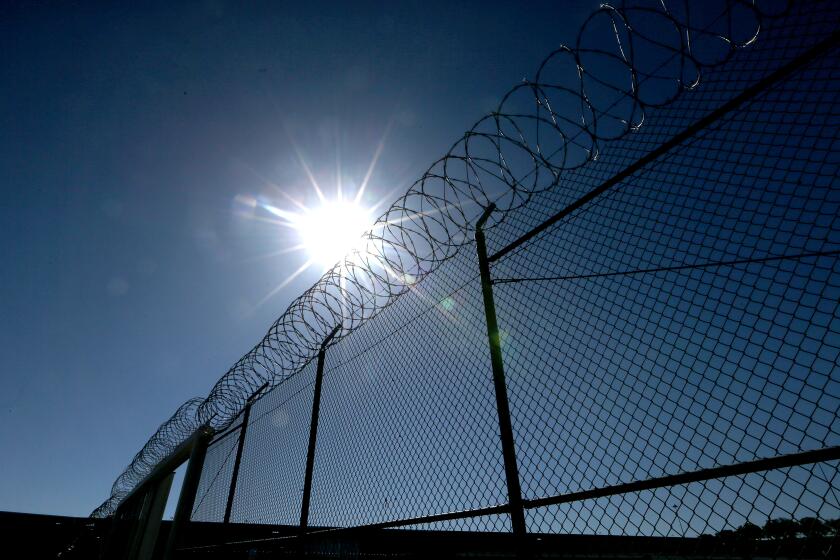How harmful is porn?
Today’s question: There have been many stories from former porn performers indicating the industry is rife with abuse, coercion and drug addiction. Doesn’t the government have an interest in curtailing this behavior through obscenity enforcement? Previously, Stagliano and McDonald debated the economics of porn, the kerfuffle over Judge Alex Kozinski’s picture collection and the constitutionality of obscenity laws.
Give me more than just anecdotes
Point: John Stagliano
Is The Times suggesting that enforcing obscenity laws will stop people from breaking other laws? Aren’t we already at the point where a government official can get you on some law somewhere if he doesn’t like you? Isn’t that what an obscenity law really is? I have no idea when I’m breaking this law. Aren’t we fast approaching this situation for any businessman? I read The Times regularly, and it sure seems that way.
I have been in the porn business since 1973. To say that it is “rife with abuse, coercion and drug addiction,” one must provide real evidence rather than a few anecdotal stories. For someone to work in porn as a producer for more than just a single film, he or she must cultivate a reputation as a good person to work for. This is a relatively small business, and if anyone is abusing performers in any way, that information is spread very quickly through the whole industry. No one has consistently done this in my business and survived; you just can’t get away with it. When I was on the fringe of the Hollywood entertainment industry in the 1970s, it seemed that there were more sleazy characters preying on wannabe actors and actresses in the non-porn world than in the porn world.
And what about the music business? Should we ban rock music and rap, which face similar accusations as the porn industry? In the ‘70s and ‘80s, the industry joke was that you had a better chance of not being taken advantage of in porn than in the “legitimate” businesses. But I am only giving anecdotal information. If The Times is going to throw this mud on my business, please give me something more. Where are the arrests of abusive porn producers?
As far as drug use goes, again, this is anecdotal. The proper thing to do would be a study of similar young people in and out of porn that compares each group’s lifestyles. Has that ever been done? Those performers who do abuse drugs quickly learn that they lose work. My European friends laugh at us for being so obsessed with controlling what people do with their bodies.
I will not apologize for the extreme porn produced today in Los Angeles. It is the expression of the creativity of the people I respect the most. They are not afraid to reach. They are using their bodies in ways unimaginable before. It is art in the purest sense of the word -- art that challenges; art that makes you think.
The crazy thing that porn has become is the most incredible expression of freedom. If you don’t like this, if you are afraid of this, that is an expression of your approach to life, not ours. We’re just achieving sexual gratification; is that so bad? Religion says it is -- to the point of torturing and killing, from the Jewish lesson of Sodom and Gomorrah to the Christians during the Inquisition to the radical Muslims who flew planes into buildings. It’s all the same mentality.
In the nation that imprisons more of its people than any other country in the world (you’re more free from jail in Russia than the United States), how can we say we are “the land of the free and the home of the brave”?
John Stagliano is an adult entertainment director, producer and distributor.
The evidence against porn
Counterpoint: Barry McDonald
John, you essentially deny that the porn industry is “rife with abuse, coercion and drug addiction,” as today’s question puts it, even though The Times asserts as fact that there have been “many stories” of such “from former porn performers.” I would think The Times is in a good position to know. But let me just say that I am a 1st Amendment scholar and certainly not an expert on the porn industry. It does not, however, take much of a research effort to uncover studies, news reports or accounts of former industry insiders that support The Times’ assertion and contradict your denials. I will mention just a couple most pertinent to today’s issues.
Let’s take abuse and coercion. A recent report on the problem of HIV and other sexually transmitted diseases in the porn industry asserts, “Performers report that they are required to work without condoms to maintain employment.” And despite an outbreak of HIV in 2004 in which a number of performers were infected and regulators put pressure on the industry to take appropriate health measures, the report says that “the adult film industry continues to produce the great majority of films without condoms.” If demanding that performers flirt with death to produce the “rawest” product possible isn’t abuse and coercion, I don’t know what is.
On the issue of drug addiction and other ills plaguing the industry, there are numerous accounts by former porn performers on how they regularly took drugs to dull the pain and emptiness of what they did and the lifestyle associated with it (click here and here). Moreover, I mentioned yesterday how experts have equated porn production with prostitution in terms of the nature of that activity and the desperate lives that lead many women in particular to engage in these activities (see University of Michigan law professor Catharine MacKinnon’s 2005 paper, “Pornography as Trafficking,” for one compelling account). And all of this is from just a brief look at the available literature.
So no, John, I cannot agree with your attempts to paint a “no different than others” portrait over a canvas that does appear to contain a much bleaker picture. I do, however, agree with you on one thing: The enforcement of obscenity laws, as today’s questions suggests, will do little to address these problems because they are not designed to do so. As has been discussed, those laws aim primarily to prevent the dissemination in society of materials more extreme and vulgar than ordinary porn fare. They are not meant to address health and safety issues within the porn industry.
But there is no question that the government has a legitimate interest in addressing such issues as it does in all industries. The 1st Amendment has never been viewed as an excuse to exempt “expressive” industries from such regulation -- just ask The Times itself. And so if existing health and safety regulations are not doing the job in the porn industry, perhaps it is time for the appropriate government agencies to renew their efforts in this area.
Barry McDonald is an associate professor at Pepperdine University School of Law and teaches and writes on 1st Amendment law.
| | | Day 4
More to Read
A cure for the common opinion
Get thought-provoking perspectives with our weekly newsletter.
You may occasionally receive promotional content from the Los Angeles Times.






